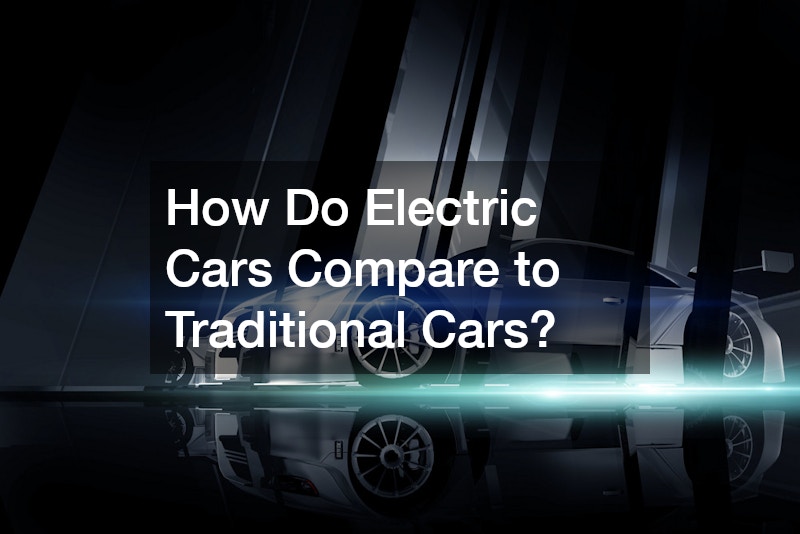In the world of automobiles, countless intriguing facts often go unnoticed by everyday car owners. From the fascinating histories of iconic car models to the sleek advancements in technology that have transformed driving experiences, the realm of cool facts about cars is vast and interesting. This article delves into the top cool facts about cars, shedding light on various aspects, ensuring every car enthusiast and owner learns something new. Whether you’re a seasoned driver or a novice owner, these insights are sure to fascinate you. Understanding the rich tapestry of automotive developments also empowers car owners, enhancing appreciation for the vehicles that are integral to daily life, while also aiding them in making informed choices when it comes to car purchases, car repairs, and embracing emerging technologies.
As car technology continues to evolve at a rapid pace, there’s no shortage of mind-blowing innovations that push the boundaries of what’s possible on the road. From electric and self-driving vehicles to advanced safety features, cars are becoming smarter, more efficient, and safer than ever before. Additionally, the automotive industry’s history is filled with surprising stories that highlight the creativity and engineering brilliance behind some of the most famous cars. The facts you’ll discover here will not only expand your automotive knowledge but also provide you with a deeper understanding of how your car works, making you a more confident and informed car owner. Whether you’re curious about the origins of the first car or the latest breakthroughs in fuel efficiency, there’s something in this article for every car lover to enjoy.
What are Some Historically Significant Cars?

Few cars have stood the test of time like the Ford Model T. Introduced by Henry Ford in 1908, the Model T was revolutionary in making car ownership accessible to the average person. Its assembly line production not only lowered costs but also became a cornerstone in manufacturing industries worldwide—truly a historic benchmark in automotive history.
The Porsche 911 is another historical marvel known for its iconic design and engineering excellence. Launched in 1964, it is celebrated for its unique aesthetics and robust performance, making it a staple of race tracks and affluent circuits. The Porsche 911 has solidified its place as a symbol of luxury and craftsmanship, influencing car designs for decades.
Meanwhile, the Toyota Prius, which launched its hybrid version in 1997, set the stage for the sustainable car movement. By pioneering the hybrid technology, the Prius introduced environmentally conscious driving to the mainstream. Not only has it had a considerable impact on reducing emissions, but it has also inspired most major manufacturers to pursue eco-friendly designs.
How Have Cars Evolved Over the Decades?
Beyond just being a mode of transport, cars have become encapsulations of technological innovations. Early cars focused on basic utility, but modern vehicles are equipped with advanced features like auto AC repair, automatic braking systems, and smart navigation aids. These advancements highlight how cars have evolved to prioritize safety, comfort, and convenience.
The integration of digital technologies further showcases this evolution. Multimedia entertainment systems, car audio installations, and real-time traffic updates are just some features enhancing the driving experience. Such advancements not only increase the pleasure and ease of driving but also improve overall vehicle functionality.
As car technologies evolve, eco-friendliness has also become a priority. The adoption of alternative power sources, such as electric and hybrid systems, represents a significant departure from traditional combustion engines. Aided by government incentives and wholesale vehicle wrap printing to promote sustainability, the future of driving continues to embrace greener solutions.
What Are the Most Popular Car Myths?
Several car myths have persisted over the years, often leading drivers astray. One such myth suggests that red cars are more likely to be pulled over for speeding. Despite its prevalence, no concrete evidence supports this claim, making it more a myth of perception than reality.
The idea that premium fuel improves all cars’ performance is another widespread myth. Premium fuel only benefits cars specifically designed for high-octane gasoline, like certain luxury or high-performance models. Using it in regular cars offers no tangible benefits, only increasing car repairs and refueling costs.
Another car myth concerns the need for frequent oil changes every 3,000 miles. While this was once standard, modern engine designs and advancements in oil technology often allow for longer intervals between changes. Drivers should follow manufacturers’ guidelines rather than rely on outdated advice, thereby ensuring optimal engine performance and efficiency.
How Do Electric Cars Compare to Traditional Cars?

Electric cars offer numerous benefits over traditional gasoline vehicles, primarily in environmental impact. They produce zero emissions, making them an attractive aspiration for curbing air pollution and combating global warming. With innovations in electric engines, more models are now meeting or exceeding the performance of conventional vehicles.
From a cost perspective, electric cars are becoming increasingly economical. Though initial costs may be higher, the savings on fuel and lower routine maintenance, from fewer car repairs to minimal engine issues, offer a compelling long-term investment. Many car owners also benefit from government incentives and tax rebates for adopting electric alternatives.
However, the differences extend beyond environmental and economic factors. Driving an electric car often provides a quieter and smoother ride compared to traditional combustion engines. Their increasing range and fast charging capabilities continue to grow, mitigating earlier concerns regarding travel limitations and convenience.
What Are the Coolest Features in Modern Cars?
The development of smart features in modern cars has undoubtedly caught the attention of many car enthusiasts. Voice-controlled interfaces allow drivers to manage various functions without taking their hands off the wheel, enhancing both safety and user experience. These systems can incorporate everything from navigation to multimedia operations, supported by seamless car audio installation.
The rise of autonomous driving technology is another thrilling innovation. While fully self-driving cars are a future goal, many vehicles now come equipped with semi-autonomous features like adaptive cruise control and parking assist. These advanced systems contribute to safer roads and a less stressful driving experience.
Furthermore, advanced integration of mobile apps has made vehicles an extension of digital lives. Features such as remote engine start, diagnostic alerts, and security systems ensure owners are always connected to their cars. This connectivity and convenience are truly spectacular highlights of modern car innovation.
Why Are Certain Car Colors More Popular?
The psychology of car color choice often influences market trends. For instance, neutral colors like white, black, and grey tend to dominate sales globally. These colors are perceived as timeless and classic, appealing to widespread preferences and offering ease in car accident law firm settlements due to their commonness.
The popularity of specific colors can also vary by region and climate. For example, white cars are more popular in warmer areas as they reflect sunlight more effectively. This choice directly ties into maintaining a cooler interior, reducing reliance on auto AC repair, and ensuring comfort.
Consumer trends and aesthetics also guide these color preferences. New drivers may opt for eye-catching or vibrant hues like red or blue, which add personality to their vehicles. Meanwhile, classic and understated tones are sought by company fleets to maintain a professional image. This strategic choice is significant for organizations like towing companies and vehicle storage solutions in their branding.
How Do Hybrid Cars Work?

Hybrid cars, combining internal combustion engines with electric propulsion, represent a critical transition toward sustainable transport. They work by utilizing both an electric motor and a gasoline engine, either simultaneously or alternately, to optimize fuel efficiency. Such duality results in reduced emissions and improved mileage, typically higher than entirely gasoline-powered vehicles.
One of the cool facts about cars in hybrid technology is energy regeneration. When braking, these vehicles can recapture kinetic energy that would otherwise be lost as heat. This energy is then stored in the battery for future use, exemplifying an innovative approach to energy conservation.
The role of advanced battery management systems can’t be overstated in hybrids. They optimize the performance and longevity of the vehicle’s battery, balancing electricity demands and supply. As these technologies advance, wholesale vehicle wrap printing businesses involved in aesthetic customizations for hybrid cars see significant growth.
What Drives Car Collectors and Their Collections?
Car collecting often goes beyond mere ownership and enters the realm of cultural and historical appreciation. Collectors are driven by nostalgia, historical significance, and personal interests in specific eras or models. This passion not only builds personal legacies but also contributes to preserving automotive history.
The value of collectible cars can sometimes be obscure, ranging from aesthetic allure to rare technological milestones. Factors like rarity, original condition, and model demand significantly influence a vehicle’s collectibility and value at auctions. For instance, limited editions or vehicles with cultural significance hold substantial allure for collectors and car lovers alike.
Towing companies often associate with car collectors, offering services to transport high-value vehicles to shows or private collections safely. In some cases, collectors connect with a community of enthusiasts who support vehicle restoration, maintenance, and showcasing in prestigious automotive events around the world. If you need to call a tow truck service, chances are you also need to contact a car accident attorney.
How is Technology Influencing Future Car Designs?
Technology is undoubtedly shaping the future of car designs in unprecedented ways. As advancements continue, the automotive industry increasingly integrates sophisticated technologies, ranging from AI-powered safety systems to state-of-the-art material usage. Each innovation contributes towards enhancing efficiency, safety, and overall user experience.
Particularly, advances in AI have ushered in a new era for auto industry innovation, with features such as predictive maintenance and real-time traffic monitoring. These concepts reduce the need for frequent car repair and offer smart solutions for daily commuting challenges. Their adoption signifies an era of heightened connectivity between driver, vehicle, and infrastructure.
Moreover, electric cars are benefiting immensely from advanced battery technologies. Improvements in energy density and rapid charging capabilities are expanding the range and feasibility of electric vehicles on a large scale. Simultaneously, developments like lightweight body materials and aerodynamic designs enhance vehicle performance, making future car designs as revolutionary as their technological foundations.
What Makes Certain Car Brands Stand Out?

Brand loyalty in the automotive industry often depends on a mix of performance, innovation, and customer experience. A window tinting company might frequently service luxury vehicles, showcasing brands that offer sleek design paired with high-performance engines. These businesses highlight the unmistakable allure and status associated with specific car brands.
Manufacturers like Tesla have set the benchmark in electric vehicle manufacturing by leading with cutting-edge technology and innovative design. Its focus on sustainability combined with performance has created a new standard that is both aspirational and practical. The brand’s dedication to innovation makes it a notable contender in redefining the future of automobiles.
Similarly, long-standing brands like BMW and Mercedes-Benz command respect in the luxury segment. Their commitment to excellence in craftsmanship, performance, and customer service contributes widely to brand reputation. Consequently, these illustrious brands continually set the gold standard and remain synonymous with quality and prestige in the automotive world.
Incorporating These Cool Facts About Cars
The automobile industry is a dynamic field filled with rich history, advancing technology, and cultural significance. Understanding these cool facts about cars provides a deeper appreciation for the vehicles that are integral to our daily lives. Studying these facets—from technological advances to historic milestones—enables car owners to make informed choices about vehicles, car repairs, and upgrades, fostering an intimate connection to driving culture. Whether it’s learning about the innovative departures in car design or recognizing the importance of environmental impacts, every car owner benefits from these insights. As technology advances, it is clear that the automotive landscape will continue to evolve, reflecting broader societal shifts and pioneering toward a more connected, efficient, and sustainable future. Each revelation and development in the automotive sector reshapes driving, ensuring this industry continues to captivate and inspire generations of car enthusiasts.
Cars are no longer just a means of transportation but have become symbols of style, performance, and innovation. As more cars integrate advanced technology like autonomous driving, electric powertrains, and artificial intelligence, car owners need to stay informed about these innovations. Understanding the features that shape modern cars—from cutting-edge fuel efficiency to safety systems that prevent accidents—helps car owners maximize the potential of their vehicles.
